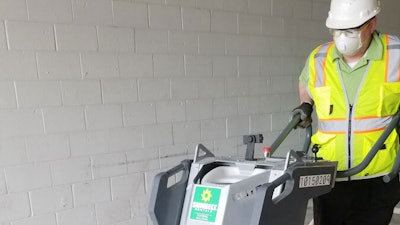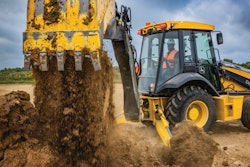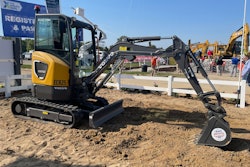
On any given project site, time is money.
In an industry where many projects end up over budget and behind schedule, crews need equipment that can maximize productivity and help them stand apart from the competition. By offering reliable, versatile equipment, construction equipment dealers can help set their customers up for success.
Notably, equipment powered by alternative fuels, like propane, offer an easy and effective way to maximize efficiencies on the job site. Many construction professionals are likely familiar with propane as part of daily operations – especially for construction mainstays like jobsite heaters and light towers – but they may not realize how many different types of equipment can run on, and benefit from, this energy source.
Jobsite basics
Propane is most popular for powering josite heaters and mobile light towers, a few must-haves for any project requiring crews to work before dawn or after dusk. While light towers have traditionally been powered by diesel, propane offers a number of benefits helping crews get the most out of their workday.
Power generation
Because it’s an independent and highly portable energy source, propane can supply power to job sites regardless of where they are located and can be stored on-site. In fact, propane’s resilient, dependable characteristics are a few reasons it’s become a go-to energy source among crews, helping to keep projects moving year-round. Propane can power generators of all sizes, including small portable generators and large towable generators.
Material handling
Crews operating material handling equipment including scissor lifts, boom lifts and forklifts can be leveraging propane’s benefits, too. Warehouses across the country rely on propane forklifts for their performance benefits, and because they can safely operate in properly ventilated indoor spaces, they can also be valuable on construction job sites after a building is enclosed. Propane-powered equipment doesn’t lose power throughout the workday or require hours of recharging, as with electric equipment, helping crews maximize productivity and keep projects on schedule. To refuel, operators can simply swap out an empty propane cylinder for a full one and get right back to work.
Concrete construction work
Many concrete contractors are finding that propane-powered equipment stands apart from other fuel options. While propane-powered concrete grinders and polishers are likely the most widely used, propane can power a long list of concrete construction equipment including riding trowels, floor strippers, dust extractors, concrete saws, power buggies and power concrete trowels. Propane can also power industrial vacuums used to collect concrete dust during grinder use.
Propane equipment allows construction crews to work independent from the grid and eliminates restrictions and safety hazards brought on by electric cords. Additionally, propane equipment gives contractors more freedom of movement, enabling them to work more efficiently. Cord-free operation is especially helpful on larger projects where there may be hundreds of feet between a machine and an electrical outlet, or in high-traffic areas where a cord can easily become a trip hazard. Brands that once offered electric-only equipment are now offering engine-driven solutions, mostly powered by propane – with some hybrid options, too.
When construction professionals turn to their local construction equipment dealer for guidance, don’t overlook propane as a versatile, efficient energy solution. Propane can provide a one-fuel solution, eliminating the need for crews to juggle multiple fuels on the job site. Plus, because it’s an approved clean alternative fuel under the Clean Air Act, producing fewer emissions compared with other options, propane-powered equipment can safely operate indoors (with proper ventilation) and outdoors – offering huge gains for productivity.
 Propane Education & Research Council
Propane Education & Research Council
Joe Calhoun is the associate director of business development for the Propane Education & Research Council.










